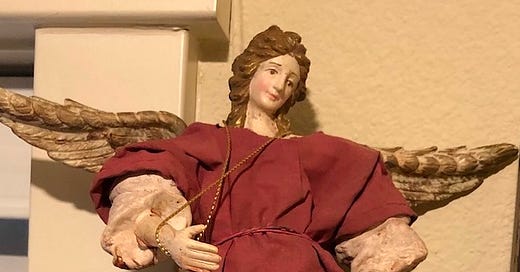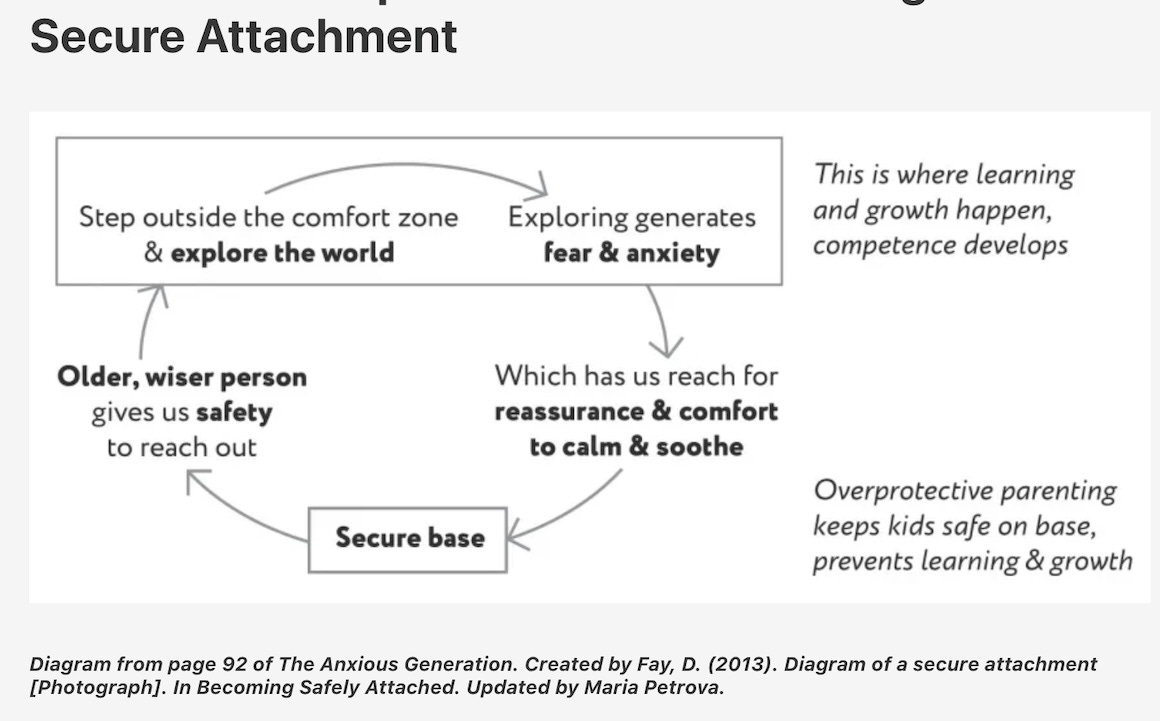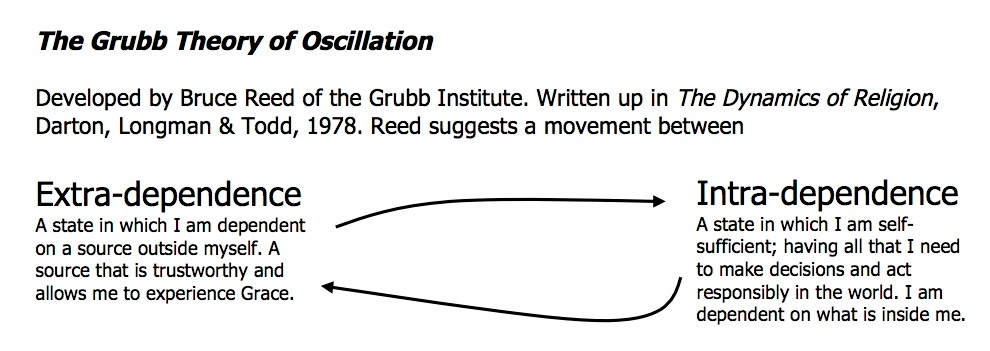This morning I read Warning: Phones Are Making PARENTS Anxious. It’s another article in that realm of loneliness, mental health of the young, and the impact of cell phones. It includes this, "Jon (Haidt) explains attachment theory. Basically, kids need at least one adult in their life who is their rock—someone they know will always be there for them. Their home base. Being sure of that home base allows them to go off-base and explore. … “As the child develops, she is able to internalize the secure base. She doesn’t need the parent’s physical presence to feel that she has support, so she learns to face adversity by herself.”
Haidt summarized all this as he applied it to adults, “We have the ability (under special conditions) to transcend self-interest and lose ourselves (temporarily and ecstatically) in something larger than ourselves.” (The Righteous Mind: Why Good People are Divided by Politics and Religion)
This sounds like the dynamic we see in the Oscillation Theory and the Renewal - Apostolate Cycle. They are not the same thing, but they all participate in the same spiritual and psychological dynamic.
Oscillation theory
In the “Task of the Church and the Role of its Members” Bruce Reed wrote, “A person going about his normal human affairs sooner or later becomes conscious of a threat to his sense of well-being. His inner world becomes disorganized, and he experiences a feeling of confusion which affects his sense of identity… the need is to regain his bearings and find a way of ordering his inner world. The person does this by seeking for something or someone outside himself on which he can concentrate or focus. That is, he allows himself to become dependent, and he is prepared to become more and more dependent until he can locate an idea, a person or an object which satisfies his requirements, and thereby can support him in his need. In religious terms, he is seeking something which can be god to him. When adult men and women engage in this, they appear to ‘become as little children’, as if they are retracing their steps to find solace within their father or mother, just as older children display behavior such as clinging to their mothers which they have otherwise outgrown. The psychological term we use for this process is regression to dependence. … We described this phase of the process as a regression to extra-dependence, because the person is moving from a mode where he feels he is self-sufficient to a mode where he is dependent on something or someone who is external to himself: extra stand for outside.” All this is explored in more depth in Bruce Reed's The Dynamics of Religion.
The Renewal – Apostolate Cycle
"The Renewal-Apostolate Cycle is a way of describing the Christian’s movement between being formed in Christ and the apostolate of daily life. It is also a way of describing the work of the parish church. In renewal we intentionally engage in disciplines and patterns of behavior that ground us more deeply in our identity and purpose as baptized members of the Church. We grow up into Christ—by living with others in a parish community that is healthy and faithful; by worship and prayer; and by learning so we might have increased self-awareness and responsibility. It is the process of becoming light, salt, leaven; of developing “an inquiring and discerning heart”; and of becoming what Evelyn Underhill calls “instruments of love.” ... In our Apostolate we join Christ in the transformation of the world. The starting point is the place we are with family and friends, in our workplace, in civic life, and as we participate in the Church’s oversight and collective Apostolate. Most of us, most of the time, have a primary vocation in the arenas of our daily life. We are instruments of compassion and justice in our workplace, with family and friends, and in civic involvement. This is a process that is largely organic and subconscious. We are light and salt to the extent we have become light and salt. We are invited to love and serve in the places we find ourselves." (Gallagher, Robert A., Fill All Things: The Dynamics of Spirituality in the Parish Church)
The priest
In An Energy Not Its Own Sister Michelle and I explore the interplay of Oscillation Theory, the Renewal – Apostolate Cycle and Jonathen Haidt’s work. This includes a segment of the role of the parish priest.
"In The Dynamics of Religion, Bruce Reed describes the fundamental Christian cycle as an oscillation between regression to extra-dependence in conscious acts of worship and formation, and regression to intra-dependence, when our identity as Christians has been accepted subconsciously and is simply present as the background for who we are and what we do. To Reed, the priest is critical to what he calls “functional” regression to extra-dependence, meaning a kind of reliance that will be helpful to the person and will ultimately affect their ability to function in the world. In worship, we allow ourselves to take our anxieties, our pain, our deepest hopes, and let them rest in God for just a little while. For Reed, the priest’s symbolic representation of God is inherent in that process. This rest Reed describes “is not passive; it is one in which change takes place in the individual’s internal organization—that is, in the system of beliefs, values and fantasies which determine his approach to life."
This abide,
Brother Robert, OA
The Feast of Cyprian of Carthage, Bishop and Martyr
About Brother Robert, OA & Sister Michelle, OA
Related articles
Oscillation Theory - The Task of the Church and the Role of Its Members
Father, can we do the same thing in mass for a few weeks in a row?







